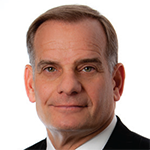
Image Credit: max sattana/shutterstock.com
On Nov. 2, 2015, President Barack Obama signed the Bipartisan Budget Act of 2015 (the Act) into law. This critical piece of legislation raises the federal debt ceiling and provides the framework for the federal budget through 2017. Of particular importance, the Act significantly changes the way Medicare will reimburse hospitals for outpatient services furnished in new off-campus hospital outpatient departments. This change signals the end of the incentive for hospitals to acquire physician practices to obtain a more favorable reimbursement rate.
Explore This Issue
February 2016Limited Payment
Specifically, Section 603 of the Act will limit Medicare reimbursement for services provided in new hospital outpatient departments to the amounts that the physician practice would receive for the same services, rather than the higher payments that hospitals have traditionally received under the Outpatient Prospective Payment System (OPPS) after converting physician practices to hospital outpatient departments.
Currently, Medicare reimburses providers differently depending on certain factors, including whether the service is inpatient or outpatient, the location where the service is provided, and the type of provider. Medicare generally pays hospitals more for physician office visits and related procedures and tests when the services are performed in a hospital outpatient department setting than a traditional physician practice receives for the same services. This is because the hospital receives both a facility fee under OPPS and a professional fee, with the combined amounts generally exceeding the payment that a physician practice would receive under the Medicare Physician Fee Schedule. This opportunity for higher reimbursement has been criticized for providing a financial incentive for hospitals to acquire physician practices and convert the practices to hospital outpatient departments.
MedPAC & White House Support
The Medicare Payment Advisory Commission (MedPAC), which is tasked with finding financial savings in Medicare, has expressed concern that evaluation and management visits and other services have been moving from physician offices to hospital outpatient department sites, resulting in higher Medicare and beneficiary spending. To reduce incentives to shift care to hospital outpatient department facilities when the patient does not need hospital-level care, MedPAC recommended adjusting the OPPS payment rates so that Medicare payment for evaluation and management office visits and various other services would be the same regardless of whether the services were provided in a physician practice or a hospital outpatient department. Paying the same amount regardless of the site of service is often referred to as site-neutral payment or site neutrality.
The White House agreed with MedPAC and formally requested that Congress adjust Medicare payment polices to reflect a more site-neutral approach.
 Although the payment policy change will take effect on Jan. 1, 2017, grandfathered status will be determined as of Nov. 1, 2015. Therefore, physician practice acquisitions will not have grandfathered status unless outpatient billing began for that practice location prior to enactment.
Although the payment policy change will take effect on Jan. 1, 2017, grandfathered status will be determined as of Nov. 1, 2015. Therefore, physician practice acquisitions will not have grandfathered status unless outpatient billing began for that practice location prior to enactment.Key Changes and Grandfathered Status
Under the Act, the site-neutral payments will effectuate savings in excess of $9 billion. New off-campus hospital outpatient departments will be paid under other Medicare payment systems, such as the Medicare Physician Fee Schedule or the Ambulatory Surgical Center Fee Schedule, rather than receiving payment under OPPS. This new policy will apply to most hospital outpatient department items and services (other than hospital emergency department services) furnished on or after Jan. 1, 2017, unless either:
- The hospital outpatient department is located within the area that Medicare regulations define as the hospital’s campus (generally, the hospital’s main buildings and areas within 250 yards of the main buildings, as well as other areas designated by CMS as part of the campus) or within 250 yards of a remote location; or
- The hospital outpatient department was billed as an outpatient department prior to Nov. 2, 2015 (the date of enactment).
It’s important to note that although the payment policy change will take effect on Jan. 1, 2017, grandfathered status will be determined as of Nov. 1, 2015. Therefore, physician practice acquisitions (even if in the pipeline prior to enactment of this legislation) will not have grandfathered status unless outpatient billing began for that practice location prior to enactment. This distinction will likely guide hospitals and health systems as they consider expanding their organizations, because there may be opportunities to expand existing off-campus hospital outpatient departments and take advantage of the more favorable OPPS reimbursement rate, as opposed to building new off-campus hospital outpatient departments, which would be subject to the payment policy change.
Practical Effect
The Act will undoubtedly affect the development and expansion strategies of hospitals and health systems. It will likely cause hospitals in the process of acquiring or developing new hospital outpatient departments to restructure those developments or possibly consider moving them on campus.
The implications of this policy change will depend in part on how the Centers for Medicare and Medicaid Services (CMS) implements Section 603 through upcoming regulations and interpretation, as well as on how hospitals, physicians, and other healthcare providers respond to this changing environment. Hospitals and health systems that are considering creating new hospital outpatient departments or acquiring existing physician practices to furnish services in an outpatient setting should consider the likely impact of the new policies.
Likewise, physicians and other healthcare providers who are considering affiliations or transactions with health systems involving outpatient services should consider the potential impact of Section 603 and upcoming regulations.
Steven M. Harris, Esq., is a nationally recognized healthcare attorney and a member of the law firm McDonald Hopkins LLC. Contact him via e-mail at sharris@mcdonaldhopkins.com.